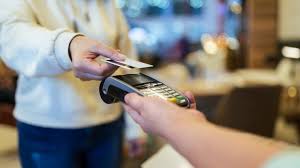
Breaking News
 Epstein Client List BOMBSHELL, Musk's 'America Party' & Tucker's Iran Interview | PB
Epstein Client List BOMBSHELL, Musk's 'America Party' & Tucker's Iran Interview | PB
 The Hidden Cost of Union Power: Rich Contracts and Layoffs Down the Road
The Hidden Cost of Union Power: Rich Contracts and Layoffs Down the Road
 Do They Deserve It? Mexico Is Collapsing As The US Deports Illegals Back Home
Do They Deserve It? Mexico Is Collapsing As The US Deports Illegals Back Home
 Copper Soars To Record High As Trump Unleashes 50% Tariff
Copper Soars To Record High As Trump Unleashes 50% Tariff
Top Tech News
 Insulator Becomes Conducting Semiconductor And Could Make Superelastic Silicone Solar Panels
Insulator Becomes Conducting Semiconductor And Could Make Superelastic Silicone Solar Panels
 Slate Truck's Under $20,000 Price Tag Just Became A Political Casualty
Slate Truck's Under $20,000 Price Tag Just Became A Political Casualty
 Wisdom Teeth Contain Unique Stem Cell That Can Form Cartilage, Neurons, and Heart Tissue
Wisdom Teeth Contain Unique Stem Cell That Can Form Cartilage, Neurons, and Heart Tissue
 Hay fever breakthrough: 'Molecular shield' blocks allergy trigger at the site
Hay fever breakthrough: 'Molecular shield' blocks allergy trigger at the site
 AI Getting Better at Medical Diagnosis
AI Getting Better at Medical Diagnosis
 Tesla Starting Integration of XAI Grok With Cars in Week or So
Tesla Starting Integration of XAI Grok With Cars in Week or So
 Bifacial Solar Panels: Everything You NEED to Know Before You Buy
Bifacial Solar Panels: Everything You NEED to Know Before You Buy
 INVASION of the TOXIC FOOD DYES:
INVASION of the TOXIC FOOD DYES:
 Let's Test a Mr Robot Attack on the New Thunderbird for Mobile
Let's Test a Mr Robot Attack on the New Thunderbird for Mobile
 Facial Recognition - Another Expanding Wolf in Sheep's Clothing Technology
Facial Recognition - Another Expanding Wolf in Sheep's Clothing Technology
43% of Americans Near Poverty Place Essential Purchases on Credit

Prices have been elevated since the worldwide pandemic shutdown the global economy and have not gone down in a meaningful way. The study found that 43% of American households who are a paycheck away from poverty cannot afford the essentials without using credit.
The report surveyed 2,298 consumers and categorized them into three financial brackets: those who do not live paycheck to paycheck, those who live paycheck to paycheck comfortably, and those who live paycheck to paycheck and struggle to pay bills.
The 43% of households living paycheck to paycheck with difficulties are eight times more likely to depend on credit cards for the essentials. This group was also six times as likely to rely on credit cards for non-essential purchases. Consumers in this category are placing 41% of all essential purchases on credit and sinking deeper into debt. Around 56% of Americans who do not live paycheck to paycheck are also purchasing essentials with credit, albeit many are using credit cards for points and incentives offered through their credit agencies. Struggling households are far more likely to rely on personal or payday loans, with 31% reporting taking out a loan for the essentials.
"While financially stable individuals may use credit extensively to maximize benefits like rewards, those facing financial strain often depend on it simply to cover essential costs. Understanding the distinct behaviors and needs of the struggling paycheck-to-paycheck consumer is crucial for financial institutions," the study notes
Those who are not living paycheck to paycheck use credit strategically to maximize incentives and credit scores. Those living comfortably paycheck to paycheck do not face significant financial stress and use credit as a financial mitigation tool. Then there is a segment of the population that needs credit as their lifeline.
Groceries are the top item that Americans are pulling out their cards to buy, with 44.1% reportingly needing to use credit to buy food. Approximately 27.5% reported relying on credit for clothing and accessories, 27% stated they needed credit for monthly bills, 18.6% for vehicle maintenance, and 15.3% for healthcare-related expenses.



